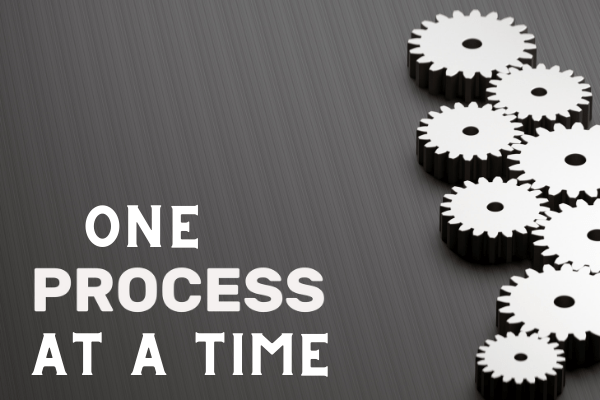Disclaimer: This post may contain affiliate links, meaning we get a small commission if you make a purchase through our link at no extra cost to you. For more information, please visit our Disclaimer Page.
Ever felt like you gave something your all and still ended up let down?
Tired of feeling stuck after setbacks?
This guide on how to get over disappointment gives you honest, practical ways to deal with letdowns, without the sugarcoat.
Learn how to stop replaying what went wrong, rebuild trust in yourself, and move forward with more clarity and grit.
You’ll get strategies that make sense and actually help—especially if you’re done pretending you’re “fine” when you’re not.
It could be a relationship, missed goal, or just life throwing curveballs, here’s how to face it and feel better again—on your own terms.
Table of Contents
What is Disappointment?
Disappointment happens when our expectations clash with reality. It’s that gap between what we hoped would happen and what actually occurred. But it’s more than just feeling let down—disappointment affects your mental health, mood, and even how you view your self-worth.
What Is the Emotion of Disappointment?
Dr. Guy Winch, psychologist and author of Emotional First Aid, describes disappointment as “the gap between expectation and reality.”
This definition helps us understand why disappointment can feel so painful—it’s not just about the outcome itself, but about the contrast between what we expected and what we got.
What Is the Root Emotion of Disappointment?
At its core, disappointment stems from unmet desires and expectations. The root emotions often include:
- Loss: You’ve lost something you were counting on
- Frustration: Your efforts didn’t yield the expected results
- Sadness: The reality isn’t what you hoped for
- Helplessness: Feeling like you can’t control the outcome
What makes disappointment particularly challenging is that it often triggers feelings of inadequacy.
When we experience repeated disappointments, we might start questioning our self-worth and abilities.
What Are the Stages of Disappointment?
Much like grief, disappointment typically unfolds in stages:
- Shock and denial: “This can’t be happening.”
- Anger and frustration: “Why is this happening to me?”
- Bargaining: “If only I had done something differently…”
- Sadness: Processing the emotional impact
- Acceptance: “This happened, and I need to move forward.”
Understanding these stages can help you recognize where you are in the process and give yourself grace as you work through them. Remember, everyone moves through these stages at their own pace.
What Happens to Your Body When You Are Disappointed?
Disappointment isn’t just emotional—it’s physical too. When you experience disappointment, your body might react with:
- Increased stress hormones like cortisol
- Muscle tension, particularly in your shoulders and jaw
- Fatigue or low energy
- Disrupted sleep patterns
- Decreased appetite or emotional eating
- Headaches
These physical symptoms highlight why it’s so important to address disappointment rather than bottling it up. Your body is literally telling you that something needs attention.
Why Am I So Disappointed in Life?
If you find yourself constantly asking this question, you’re not alone. Chronic disappointment often stems from several sources:
Unrealistic Expectations
One of the primary causes of persistent disappointment is setting expectations that are difficult or impossible to meet. We live in a culture that constantly bombards us with images of “perfect” lives, careers, and relationships—setting up standards that often don’t align with reality.
Comparison Trap
In today’s social media-driven world, it’s easy to fall into the comparison trap. When you’re constantly measuring your life against carefully curated highlights of others, disappointment is inevitable.
Perfectionistic Tendencies
Perfectionists often struggle with disappointment because they set impossibly high standards for themselves and others. If you identify with this tendency, you might benefit from embracing a growth mindset instead.
External Validation Dependence
When your sense of success is heavily dependent on others’ approval or recognition, you’re more vulnerable to disappointment. Learning to stop caring about others’ opinions can be a game-changer.
Why Does Disappointment Hurt So Much?
“Why does disappointment feel like a physical pain?” a reader once asked me. The answer lies in our neurobiology.
Disappointment often triggers our deepest insecurities and fears.
When we invest emotionally in an outcome and it doesn’t happen, we’re not just disappointed by the event itself—we’re confronted with our own vulnerability.
Can Disappointment Be Traumatic?
In some cases, yes. Particularly when:
- The disappointment involves betrayal by someone you trusted
- It reinforces negative beliefs about yourself or the world
- It comes after you’ve taken a significant risk
- It happens during formative years or vulnerable periods
According to research published in the Journal of Personality and Social Psychology, repeated disappointments can lead to learned helplessness, where people stop trying because they expect negative outcomes.
This demonstrates how disappointment, when not processed healthily, can have lasting psychological impacts.
How to Get Over the Feeling of Disappointment
Now that we understand what disappointment is and why it hurts, let’s explore effective strategies to overcome it:
1. Recognize and Accept Your Feelings
The first step in overcoming disappointment is acknowledging it. Don’t mask your feelings or pretend everything is fine when it isn’t. Being honest about your emotions creates space for healing.
Put aside pride and admit that something didn’t go as planned. Naming your emotion helps tame it—”I am feeling disappointed right now, and that’s okay.” This simple acknowledgment can prevent disappointment from escalating into depression.
2. Evaluate the Situation Objectively
Once you’ve acknowledged your feelings, take a step back and assess the situation:
- What exactly am I disappointed about?
- Were my expectations realistic?
- What factors were within my control, and what weren’t?
- What can I learn from this experience?
This evaluation helps you gain perspective and identify actionable lessons rather than dwelling on the negative feelings.
3. Seek Support from Others
Disappointment doesn’t have to be faced alone. Sharing your feelings with trusted friends, family members, or a counselor can provide validation and fresh perspectives.
Look for someone who has faced similar challenges—their insights on how they overcame disappointment can be invaluable. As researcher Brené Brown notes, connection with others is one of our most powerful tools for building resilience.

4. Tap Into Your Inner Strength
How to get over crushing disappointment? Reach deeper into yourself. Every person has untapped potential and resilience that can be activated during challenging times.
Try asking yourself:
- What strengths have helped me overcome difficulties in the past?
- How have I bounced back from setbacks before?
- What inner resources can I draw upon now?
Reminding yourself of your past resilience can boost your confidence in your ability to overcome current disappointments.
5. Redefine Success on Your Own Terms
Many disappointments stem from adopting others’ definitions of success rather than creating your own. Take time to reflect on what truly matters to you and align your goals accordingly.
Consider breaking larger goals into smaller, manageable steps. This approach reduces the risk of overwhelming disappointment and provides more frequent opportunities to celebrate progress.
As the saying goes, “Success is not built on success. It’s built on failure. It’s built on frustration. Sometimes it’s built on catastrophe.” Embracing this perspective can transform how you view setbacks.
6. Focus on Process Rather Than Outcome

One powerful way to mitigate disappointment is to shift your focus from outcomes to process. Instead of fixating solely on results, celebrate your effort, growth, and the journey itself.
For example, rather than being disappointed about not getting a job, acknowledge the skills you developed while preparing for the interview and how they’ll benefit you in the future.
7. Practice Self-Compassion
Self-compassion is crucial when dealing with disappointment. Treat yourself with the same kindness and understanding you would offer a good friend facing disappointment.
Research by Dr. Kristin Neff shows that self-compassion is more effective than self-criticism for motivation and resilience. When you’re kind to yourself during difficult times, you create an emotional environment where healing and growth can occur.
How to Handle When Someone Disappoints You
Disappointment in relationships can be particularly painful. Here’s how to address it constructively:
Express Your Feelings Appropriately
Is it OK to tell someone you’re disappointed in them? Yes, when done constructively. Instead of accusatory language, use “I” statements to express how their actions affected you:
Rather than: “You always let me down.” Try: “I felt disappointed when [specific action] happened because [impact on you].”
Set Healthy Boundaries
Recurring disappointments may signal the need for clearer boundaries. Reflect on what you need from the relationship and communicate those needs directly.
Remember that setting boundaries isn’t selfish—it’s an act of self-respect and relationship care. As psychologist Henry Cloud puts it, “Boundaries define us. They define what is me and what is not me.”
Decide Whether to Forgive
Forgiveness doesn’t mean excusing bad behavior or pretending it didn’t hurt. Rather, it’s about releasing yourself from the burden of resentment.
Consider whether:
- The person acknowledges the impact of their actions
- They show genuine remorse
- There’s a pattern of disappointing behavior or a one-time mistake
- The relationship is worth investing in
Sometimes the strongest word for disappointed is “betrayed”—when trust has been fundamentally broken. In such cases, rebuilding the relationship requires significant effort from both parties.
Learning When to Let Go
Sometimes, the healthiest response to repeated disappointment is learning when to let go. This doesn’t mean giving up easily, but recognizing when a situation or relationship is consistently undermining your wellbeing.
Letting go might involve:
- Ending or limiting a relationship
- Abandoning a goal that no longer serves you
- Releasing expectations that aren’t serving your growth
How to Deal with Disappointment Biblically
For those seeking spiritual guidance, the Bible offers wisdom on handling disappointment:
Understanding Why God Allows Disappointment
Many wonder why God allows disappointment in our lives. Biblical perspective suggests that disappointments can:
- Develop our character and perseverance (Romans 5:3-4)
- Help us rely on God rather than ourselves (2 Corinthians 1:8-9)
- Redirect us toward better paths (Proverbs 16:9)
- Deepen our compassion for others (2 Corinthians 1:3-4)
Biblical Strategies for Overcoming Disappointment
The Bible offers practical wisdom for dealing with disappointment:
- Cast your anxieties on God (1 Peter 5:7) – Release your disappointments to God through prayer
- Renew your mind (Romans 12:2) – Challenge negative thought patterns with biblical truth
- Remember God’s faithfulness (Lamentations 3:21-23) – Recall past instances where good came from difficult situations
- Community support (Galatians 6:2) – Share burdens with fellow believers
For those seeking strength through faith, Bible verses about stress and worry can provide comfort during disappointing times.
How to Be Happy When You Are Disappointed
Is it possible to find happiness amid disappointment? Absolutely. Here’s how:
Practice Emotional Agility
Psychologist Susan David describes emotional agility as the ability to experience difficult emotions while continuing to act in alignment with your values. This doesn’t mean suppressing disappointment, but rather acknowledging it while not letting it dictate your actions.
Find the Silver Lining
Look for unexpected benefits or lessons in disappointing situations. This isn’t about toxic positivity, but about recognizing that growth often happens through challenges.
Research on post-traumatic growth shows that many people identify positive changes that occur as a result of struggling with highly challenging life circumstances.
Engage in Mood-Boosting Activities
When disappointment strikes, intentionally engage in activities that boost your mood:
- Physical exercise releases endorphins
- Spending time in nature reduces stress hormones
- Connecting with loved ones activates your brain’s reward system
- Creating art or music provides emotional outlet
These activities won’t erase disappointment, but they can help prevent it from overwhelming your entire emotional landscape.
How to Stop Crying Over Disappointment
If disappointment brings you to tears frequently, these strategies may help:
Physical Techniques
- Deep breathing exercises to calm your nervous system
- Cold water on your face to trigger the mammalian dive reflex
- Progressive muscle relaxation to release physical tension
Emotional Processing Techniques
- Journal about your feelings to externalize them
- Set a specific “worry time” to contain emotional processing
- Use self-talk to remind yourself of your strength and resilience
Remember that crying itself isn’t the problem—it’s a natural emotional release. The goal isn’t to never cry, but to ensure tears don’t prevent you from moving forward.
How to Professionally Say I’m Disappointed
In workplace settings, expressing disappointment requires tact. Here’s how to do it professionally:
Focus on Specific Behaviors and Impacts
Instead of making character judgments, discuss specific actions and their effects:
“I was expecting the report by Friday as we discussed. When it wasn’t delivered, it impacted our ability to meet the client deadline.”
Propose Solutions
Move quickly from expressing disappointment to problem-solving:
“Moving forward, I’d appreciate a heads-up if timelines need to be adjusted. Would it help if we scheduled a mid-week check-in?”
Choose the Right Setting
Private conversations are almost always better than public ones for expressing disappointment. This preserves dignity and increases the likelihood of constructive dialogue.
The Strength to Face Disappointment
What is the strength of mind to face disappointment or defeat in one word? Resilience.
Resilience isn’t about never feeling disappointed—it’s about how quickly and effectively you can bounce back. It’s the psychological muscle that helps you face setbacks with courage and determination.
Resilience can be developed. Each time you work through disappointment constructively, you strengthen this vital capacity.
Final Thoughts: Transforming Disappointment into Growth
Disappointment, while painful, doesn’t have to be the end of your story. With the right mindset and strategies, it can become a powerful catalyst for personal growth and deeper wisdom.
Remember:
- Acknowledge your feelings without judgment
- Learn from the experience
- Seek support when needed
- Focus on what you can control
- Define success on your own terms
- Practice self-compassion throughout the process
As you implement these strategies, you’ll likely find yourself not just recovering from disappointment, but actually using it as a stepping stone to greater resilience, wisdom, and fulfillment.
What strategies have helped you overcome disappointment? I’d love to hear your experiences in the comments below.
Share this post with someone who might be struggling with disappointment—sometimes knowing we’re not alone in our struggles makes all the difference.






